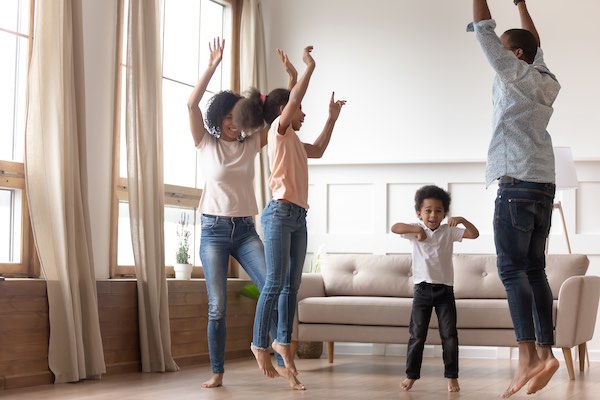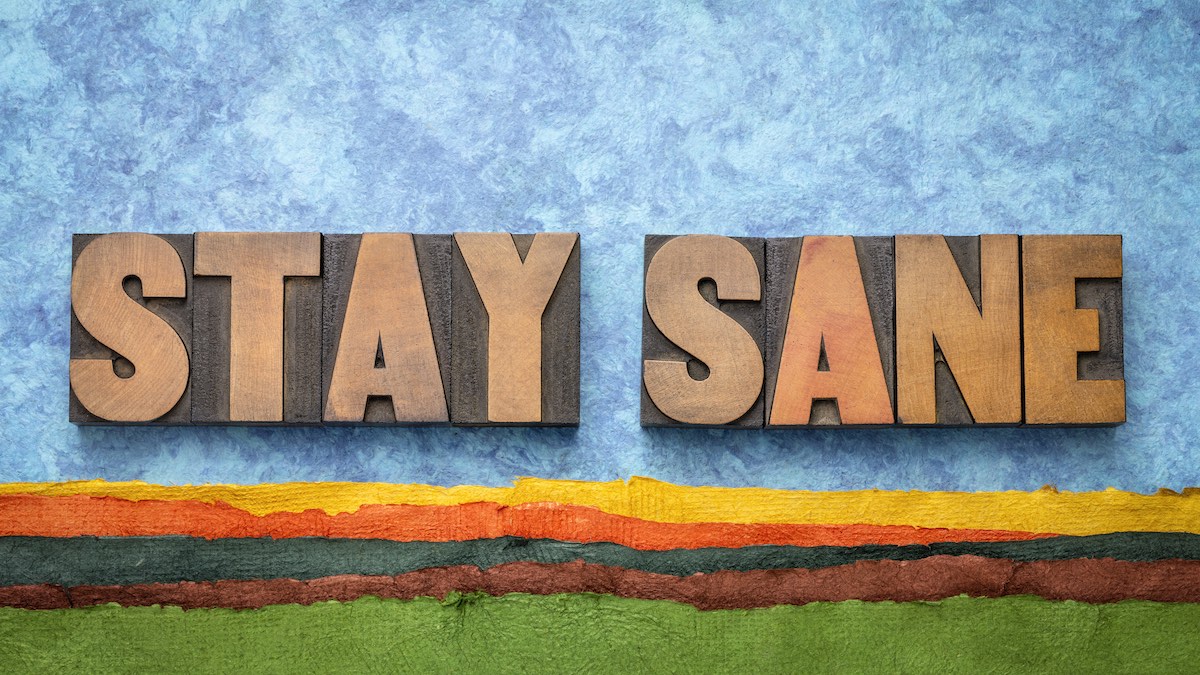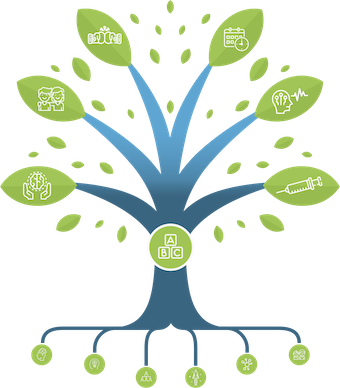Tips to keep your mental health for physicians…and everyone else!
Inspired from a document by the Psychiatrist Association of Quebec distributed to physicians. But hey, other people can benefit from good advice too!
Living during COVID-19 is not easy.
Depending on a person’s character, COVID related stressors, confinement settings, and other factors, different feelings can occur:
- Anxiety, rumination, panic
- Confusion, difficulty to focus
- Irritability, feeling impatient, restless
- Sleep and appetite changes, too little or too much
- Denial and acting stronger than we feel
- Loss and grief (work, friends, fun, sickness of a close one)
- Lack of motivation, loss of purpose
Limit the exposure to traditional media and social media to 2 hours per day
Information is important to be aware of current regional and national affairs, of federal recommendations and how to continue to protect oneself. On the other side, repeated alerts are not beneficial and can even harmful.
Take care of your sleep
Keep exercising, even a little
Gyms, pools and arenas are closed, leading to lost opportunities for exercise and fun.
Still, try to adapt and find new options!
- Take walks outdoors – respecting social distance
- Do gentle stretching at home, use YouTube videos for guidance
- Try beginner yoga or pilates
- Dance on your own or with your family – let the energy out
- Light strength training
- Go up and down stairs a few times

Explore new leisure activities you always wanted to try:
- Sing, learn a new language, cook, draw,
- Try arts and crafts.
- Explore podcasts – there are many of topics!
- Do a photo album with all those pics from your last travel
- Sort through old photo albums
Keep in touch with your friends
- Try a phone conversation instead of texting. Hearing a voice is better!
- Try virtual gatherings with online platforms.
- Show your grandparents or parents how to use Skype, Zoom, Facetime, Whatsapp
Keep a stable routine with things that produce an instant gratification
- Shower/bath daily, add some self-care
- Make your bed every day
- Wash the dishes and clean your home
Do some homework and “clean up” your stuff.
- Reorganize the Tupperware storage.
- Sort out your socks (closet)
- Paint a room that needs it
- Get rid of clothes that you don’t wear
- Clean the cutlery drawer
- Tackle the storage room – little by little
- Any organizing thing that gives you a good feeling!
Allow yourself some alone time
- If you live with family or friends, even if you love them, they might hit on your nerves at some point. Make time to get away on your own.
- Set time for being by yourself, even for a few minutes. Sit in a room by yourself or go for a walk. Listen to music with headphones.
- Agree on a signal that means you need to be alone. A few minutes to ourselves can give us a fresh perspective and refound energy to get through dinner, bedtime routine, etc.

If you have kids at home
It’s not easy to work at home with family (kids, parents, spouse/partner) present.
- Try to keep a routine – for everyone.
- Use a board so they can see the plan for the day (including when YOU have to work)
- Make time for some individual time for everyone.
- Embrace bedtime if you are able
- Sing songs together and laugh
- Find resources to help you talk to your kids about the pandemic
A simple gratitude exercise
- Every evening, before going to be, write down three things that went well today. Even the simplest things are important! This will help your mind to focus on good things.
- We have a natural tendency to pay more attention to the negative, and in times like this we need to gently remind our minds that positive things exist!
Focus on what the pandemic can bring to you, not only what you are missing because of it
- There is always some silver lining. Try to find yours.
- We encourage you to take this unplanned time to self reflect. Our busy lives do not allow us to pause very often. It may feel difficult to stop, and we’re forced to do it, but still it’s an opportunity.
Beware of catastrophizing
- Words are powerful and evoke emotions. No need to deny anything, just removing some of the weight!
- «Strange» and «interesting» will trigger less anxiety than «horrific» or «terrible».
- It may help to think about people in worse situations (refugee camps) to relativize.
Allow yourself some humor
Laughing is good for health. Humor has helped humanity get through the hardest of times.
- Watch funny shows
- Play silly games
- Do a funny choreography with your family
- Remember funny moments
- LIVE. LAUGH. LOVE. Even now.
We wish you to find some haven from all the worries and fear we are enduring as we ride the Covid-19 pandemic roller coaster.
Categories
THE MIGRAINE TREE
- BRANCHES
- ACUTE TREATMENTS
- DEVICES AND NEUROMULATIOIN
- PREVENTIVE TREATMENTS
- PROCEDURES AND INJECTIONS
- SELF-CARE AND LIFESTYLE
- SOCIAL LIFE
- TRUNK
- ROOTS
OTHER CATEGORIES




